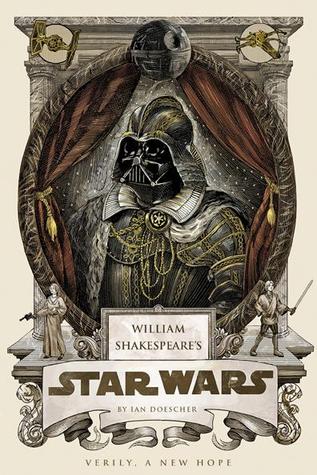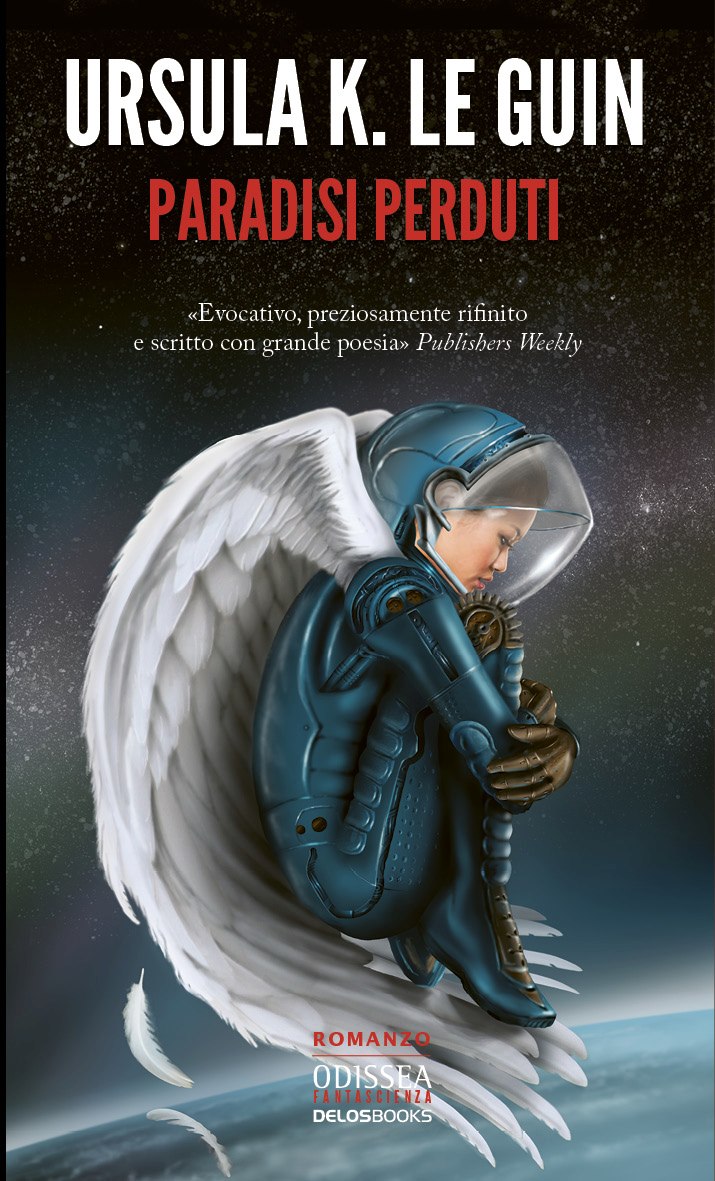Steampunk! An Anthology of Fantastically Rich and Strange Stories is a cromulent collection of short stories, though uneven like most (maybe all) multi-author collections. I do appreciate the emphasis by editor Kelly Link on steampunk stories outside of the now-iconic Victorian London steampunk setting. I like the thickly urban setting – it’s what drew me to the sub-genre in the first place – but I can get fiercely irritated with the way some steampunk fetishizes the upper class twit of the year with his goggles and laboratory that I sometimes find in that setting. So, to the individual stories.
is a cromulent collection of short stories, though uneven like most (maybe all) multi-author collections. I do appreciate the emphasis by editor Kelly Link on steampunk stories outside of the now-iconic Victorian London steampunk setting. I like the thickly urban setting – it’s what drew me to the sub-genre in the first place – but I can get fiercely irritated with the way some steampunk fetishizes the upper class twit of the year with his goggles and laboratory that I sometimes find in that setting. So, to the individual stories.
“Some Unfortunate Future Day” by Cassandra Clare: Inoffensive piece of atmosphere that fails to say anything at all, cutting out right when the real narrative choices need to be made. The daughter of a mad scientist is abandoned by her father to go fight in some ill-defined war, leaving her in the care of Romantic talking dolls in a crumbling Gothic house. A soldier falls out of the sky, which leads to a lot of naive narrative imaginings from the girl, and then the obvious use of a Chekhovian timepiece and then…the end! It’s like a chapter cut out of a larger narrative where all the implications come to fruition in the next chapter. But the story is pretty enough, I guess, and the only thing I really hated was the entirety of Shakespeare’s Sonnet 64 used as an epigraph. Seriously, who does that for a short story? Ugh.
“The Last Ride of the Glory Girls” by Libba Bray. I would absolutely kill for a Glory Girls novel, which is not to say this doesn’t function as a short story. Reminded me strongly of Firefly, with its frontier planet full of harsh religion and frontier cruelties, written in a stylized dialect that totally works. Pinkertons, train heists, girl bandits, divided loyalties: all the things that make Old West stories a hand-to-hand combat of colonialism. There is also arresting baptism by sludge sequence here, a very tactile metaphor for the industrial revolution, etc etc.
“Clockwork Fagin” by Cory Doctorow. Very anecdotal story, told in the first person by a boy matriculating in an orphanage of children mangled in punk-shifted industrial factories. “Clockwork Fagin” is obviously a Dickens riff – Fagin was the antagonist in Oliver Twist – with its social consciousness and the plight of youngsters in the industrial machine. Full marks for being a story that doesn’t fetishize the corsets and monocles set, instead focusing on the organized rebellion of the working class. Workers of the world, unite!
“Seven Days Beset by Demons” by Shawn Cheng. Seven deadly sins in comic form with perplexing steampunk ornament and terrible lettering. At least it’s short.
“Hand in Glove” by Ysabeau S. Wilce. Too smart for her own good detective gets on the trail of a serial killer, despite an indigent man having already been convicted to hang for the murders. Some of the plot mechanics were unsuccessful – I didn’t like the mad scientists much – but the narrative voice is snappy, and the overall aims of the story worthy. The ways entrenched bureaucracies, like the police force, use and abuse science are always worth examining.
“Ghost of Cwmlech Manor” by Delia Sherman. Not really to my taste, but a goodhearted little story. Cwmlech Manor is haunted by the ghost of the once mistress of the manor, killed in the English Civil War by Cavaliers looking for loot. The main character is a plucky girl type, who is pragmatic about her romanticism.
Best of all, I loved the story that went with [Cwmlech Manor] – very romantic and a girl as the hero – a rare enough thing in romantic tales, where the young girls always act like ninnies and end up dead of a broken heart, often as not.
You can see the grammar is tortured, but the sentiment is neat. Her remark about the legend ends up describing her own story. Go girls.
“Gethsemane” by Elizabeth Knox. A perplexing story, one with interesting themes that never came together satisfactorily for me. The setting on a Caribbean island (?) was cool, as were the racial themes: passing, folklore, even the old school non-Romerian zombie. But the plot ranged over too many characters, and shifted perspectives weirdly. I admit I just didn’t get it, but I suspect there was something here to get.
“The Summer People” by Kelly Link. Editor, edit thyself! Which is a bitchy thing to say, and I don’t really mean it. This isn’t a bad story at all, but its steampunk elements are so nominal as to make it feel like a shoehorn job in the collection. It’s not even so much that I don’t think magic has a place in steampunkery – there’s a growing body of dash-punk work out there that shifts history by magic instead of technology – but that this magic doesn’t really do that. That said, I enjoyed this story about a girl tasked with minding the summer people, who we first are to understand are summer vacationers to her poor, rural setting. I liked her relationship with a vacationer-turned-resident, a girl who is slightly enamored of all the folksy poverty, which is of course only folksy to outsiders. The ending is a bit obvious, and the denouement more truncated than I would like, but a good story anyway. Fine, Kelly, you win.
“Peace in Our Time” by Garth Nix. I’m on record as a Nix fan, but the more I see of his short fiction, the more I think he shouldn’t write it. The narrative voice was daft and grated, and the characterization poor. It wasn’t so much a story as a situation, one that ended in a OH DO YOU SEE? reveal that hearkened to the hokiest of Twilight Zone endings. Bah.
“Nowhere Fast” by Christopher Rowe. Another short story that ends right before it should get interesting, where the real conflicts are going to begin. I don’t feel as irritated by this as the Clare short story, because at least this world is aiming for something more than pretty but useless. This is one of those post-apocalyptic utopias that no one bothers to write anymore – two generations past peak oil in a fiercely local America. A boy in a car, of all things, shows up in town, which kicks over a bunch of anthills. Given how bound up in our national identity the automobile is, it was interesting to consider the American landscape without them.
“Finishing School” by Kathleen Jennings. Another comic. Slender reimagining of the invention of flight, this time by a daughter of Scottish and Chinese parents who is stuck in an Australian school for girls. Nice metaphors of girlish exuberance. When a friend’s mom got divorced, she took Amelia as a middle name. We long for flight sometimes, and sometimes we should get it.
“Steam Girl” by Dylan Horrocks. I think I’m going to call this one out as the stand out of this collection. A nerdy, chubby boy semi-befriends a poor, outcast girl. She tells him stories of Steam Girl, an obvious self-avatar grown long-limbed and beautiful in her pulpy imaginings. Horrocks has a good sense of the teenage outcast – not the romantic one, with his bangs in his eyes, but the real kind: uncomfortable in his body, clueless, and slightly horndoggish, but not in a particularly nasty or cruel way. Escapism is important for people who have something to escape from, and this story is so sensitive to that equation.
“Everything Amiable and Obliging” by Holly Black. Fine, I guess, but I don’t think all the implications of the central metaphors here were considered, so I feel all squicky in the end. A girl falls in love with a house automaton, and her family tries to dissuade her from her love of the dancing instructor robot. He’s part of the hive consciousness of the house, and there’s a lot of shouting and stuff about loving robots designed to give you exactly what you want. That’s not the squick part for me. The squick part was when this was equated with the other girl’s lack of agency in her own relationships, and then my brain started shouting, but wait! Are we characterizing the working class as automata? Are we really saying girls lack agency? I can see where Black was going with this, I just don’t think it was thought out enough.
“The Oracle Engine” by M. T. Anderson. A Roman steampunk story. And not modern Roman, but the Classical kind. Holy shit, but this was fun. Written in that gossipy historian’s voice, the one that relates a bunch of folklore and quotes the classics, and then pulls back demurely and says there isn’t any basis for that conjecture. I was fully expecting a Mechanical Turk at the center of this story, which, if you are not familiar with the concept, was a chess-playing engine invented in the 18th C, but turned out to be a dude hiding in a box and not an automaton at all. (Amazon has named it’s crowd-sourcing venture after this, and this enterprise is why capchas have gotten so freaking annoying.) That would have been neat, but the actual center of the story is so much cooler and weirder. GIGO.
Oh, and also? The scientific ornament was brilliant. Archimedes almost invented calculus, for crissakes, and while there’s no guarantees that the lunatics of the Middle Ages wouldn’t have lost his discoveries – like they did with how to make concrete – had Archimedes’s discoveries become widely known, it is a fun thought experiment to consider.





